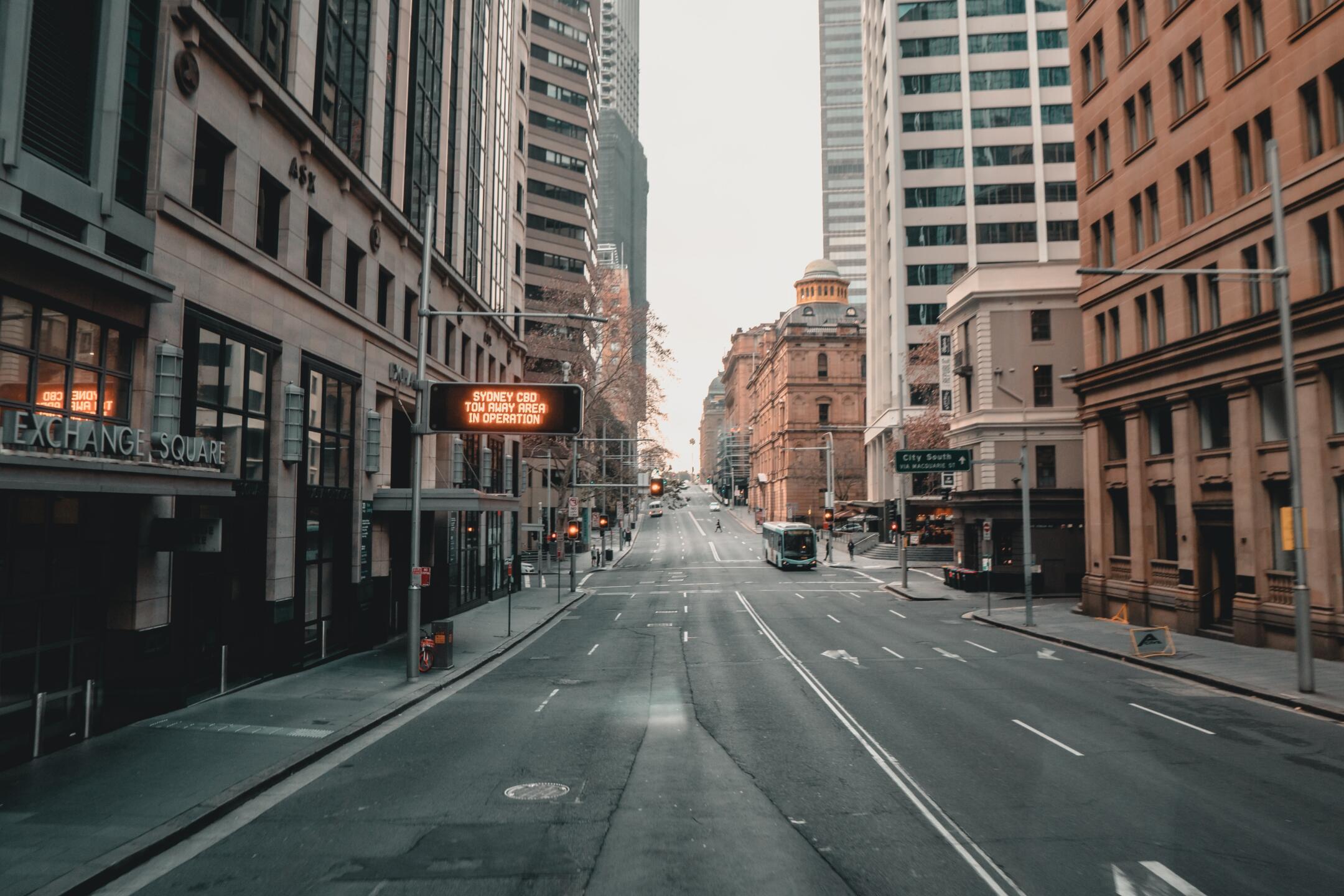Navigating Uncertainty
Top Trending Posts

In late 2019, pre COVID-19, PwC undertook their global CEO survey. For the first time ever, more than half, or 53% of Australia CEO’s believed that rate of global economic growth would decline. The great theme was Uncertainty. Fast-forward a few months, and we are in a completely unpredictable and incomprehensible position that has significantly deepened that ‘emergent’ theme of uncertainty.
Last week we reached out to our graduates and the public with some questions to explore public sentiment around leadership in the time of COVID-19. We connected with leaders, willing to share their raw and honest experiences, offering us an insight into their greatest concerns.
Of the 50 we connected with, uncertainty was the leading theme, so, here’s some information and advice on how to navigate.
What is Uncertainty?
Uncertainty arises when we are unable to predict and control what’s happening in our world. It might also be experienced as a feeling of fear or anxiety. Uncertainty arises when we have no way of making sense of what’s happening. Right now, is a moment when we want desperately to know what comes next, and given the unprecedented unfolding of events, we cannot.
Uncertainty is not just a feeling, it involves habits of thinking and is experienced in our bodies. It usually arises for us as a ‘feeling’, like fear and anxiety, but in the body this can manifest as jumpiness, nervousness, fatigue, exhaustion or a body sense of ‘being on edge’. This is fuelled by thoughts. We might be thinking “Something’s going to happen, and I won’t cope” or “I won’t ever recover from this.”
This time of ‘groundlessness’ and unknowing brings us close to our very deepest concerns or our fears about the future. Before coronavirus, we had a strong sense of predictability in our lives, and now that we do not, this brings up all of our fears.
How Do We Confront Our Fears?
Confronting our fears is the first step towards navigating uncertainty. First of all we take some time to identify what it is we are fearing. Initially, that might look like no money, no job, no security, or the loss of what we’ve planned. Below that, there might be something deeper playing out – feelings of being unsafe, feelings of being a failure, feelings of being incompetent to ‘figure this out’, feelings of powerlessness.
In facing our fears it can be helpful to explore them. Try listing what you fear – all of your fears. Then, invest time in exploring all of the scenarios available – especially the ‘worst-case’ outcomes. Instead of avoiding the thoughts, confront them. By identifying all of the possible scenarios, you can then make a deliberate choice to identify ways to prevent the worst-case outcomes and through this process, reveal opportunities and possibilities not yet seen.
Surprisingly, the very act of engaging with the feelings is the way we learn to ‘be with’ the feeling we call ‘fear’. Once we do this, the word (and the feeling) loses its power.
How Do We Accept Uncertainty?
Just like identifying our worst-case scenarios, we begin to accept uncertainty when we identify exactly what it is we are opposing or fighting against. Often, we are opposing things we cannot change and this is futile. So, once we identify what we cannot change, and once we accept that we cannot predict and control, our inner world (our reflections) can go quiet again.
Accepting means learning to feel the feelings without running from them. Sitting in the absolute discomfort of feeling the feelings and breathing into them. Accepting the feelings.
The idea of breathing and coming back to our bodies in a mindful way helps us stop the continuous self-talk or chatter in our head. So, we breathe. We come to the present. We accept the raw feeling. We face it, then we settle within ourselves. The more that we focus on the body and our breathing, the more our inner unhelpful chatter fades.
We build a break between ourselves and the panic. We recognise at some level that to continue to try and predict and control takes the very precious energy we need to be well. So, we make a decision to stop.
How Can We Live Each Day More Peacefully?
The key to living each day more peacefully is to live without expectation. For the past 40 years we’ve lived with relative predictability, but in January 2020, that changed for us.
Deep down, we might think it’s a matter of time before things go back to normal. But ‘normal’ may be an entirely new way of living. If we expect things will return as they once were, we are setting ourselves up for disappointment.
That does not mean we live without hope. It means we replace expectation with anticipation. We learn to live with the full range of what life might offer and live more in acceptance that any of these scenarios might play out – we live in the mood of wonder.
What Can We Do To Overcome Uncertainty?
Overcoming uncertainty is a deliberate step we can all take. The mood of gratitude is key here.
Gratitude is a feeling of appreciation and thankfulness. Gratitude gives us a positive perspective on life. When we approach life with gratitude, we consider the things in life that are working well, we focus more on the positive and this helps the positive to expand.
Gratitude invites less judgement of others, and enhances our ability to accept events as opportunities rather than problems. It helps us put aside our bickering and complaints and invites us to look for the good in people and events in our life – even those that have (and do) seem difficult.
Think about what you’re grateful for every day. What are you grateful for in your life right now? Who are you most grateful for having in your life and why? What opportunities and experiences are you grateful for?
Consider starting a gratitude journal as a daily practice. Make a list every day of 5-10 things you are grateful for over the coming two weeks. You can start every day with a sense of optimism and humility. Gratitude is like sewing seeds of hope in times of uncertainty.
In addition to gratitude practice, consider building a support network. It’s important to speak to others in this time. Identify those people you enjoy connecting with – those who create feelings of optimism and possibility when you speak.
Share your experiences with them and don’t be afraid to share fears and concerns. Try listening to their experiences without judgement and without an agenda – just tune in to what’s happening for people. You might be surprised at how different you feel after spending some quality time in conversation.
Social distancing does not mean not sharing and not talking.
Decide What’s Really Important?
In our western world, life is always pretty busy. Business, friends, children, family, study, travel for work… more…
The blessing of this time is being able to come back to basics and identifying what’s most important. We are being forced to re-centre ourselves and get out of the crazy.
So, when it all boils down, what REALLY matters? Family? Quality time with your dearest friends? Re-connecting with your children?
The pace of life can distract us, but this time offers a space to reassess and recalibrate. Some part of us seems addicted the frenetic pace, but perhaps this time is a time of remembering and reconnecting.
When you ask “what REALLY matters for you, when all else falls away?”, the answer can become remarkably clear.
Share This
Top Trending Posts
Sign Up
to our blogs and receive regular updates.

Stay in the Conversation
with Liberated Leaders...






